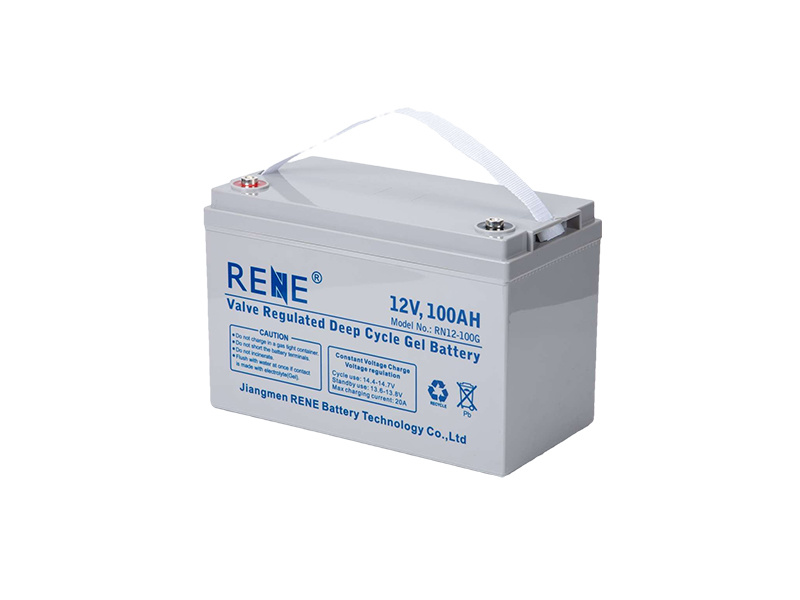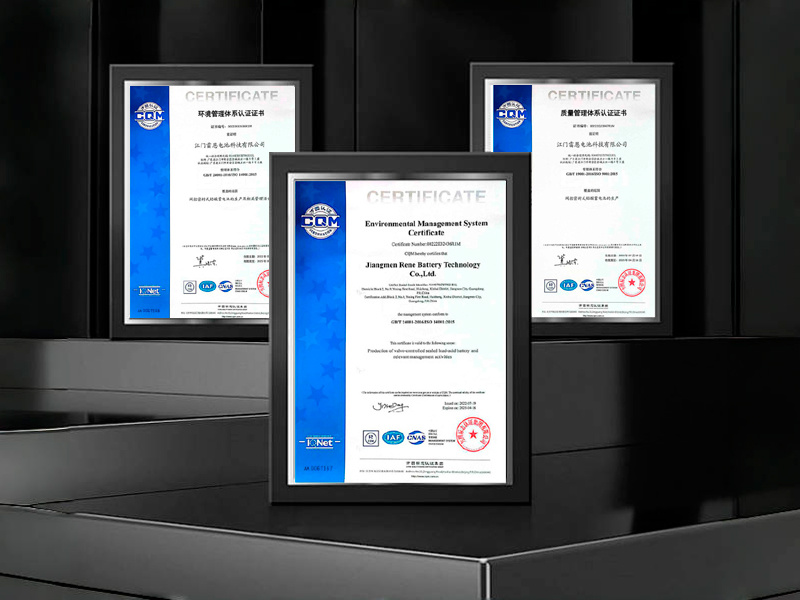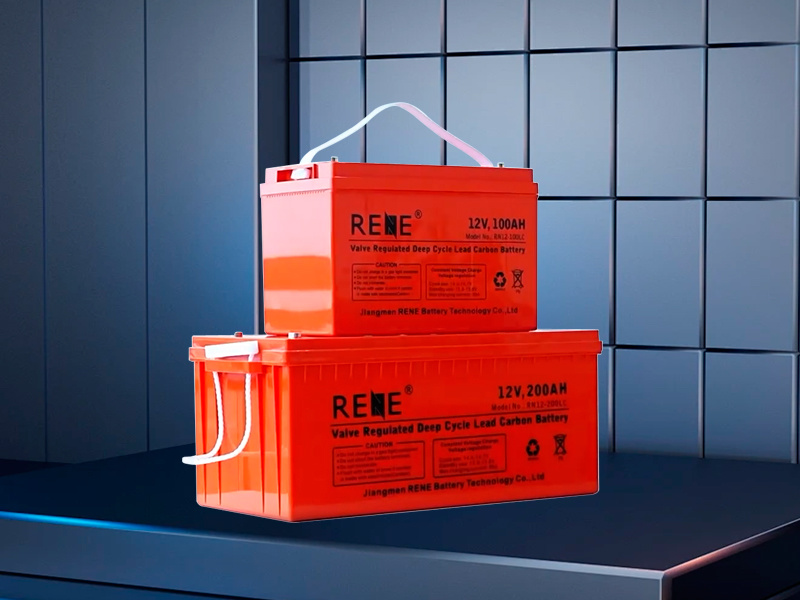Jiangmen Rene Battery Technology Co., Ltd.
Unlocking the Power: Discovering the Benefits of New Lithium Deep Cycle Batteries
2025-07-02
Unlocking the Power: Benefits of New Lithium Deep Cycle Batteries Table of Contents 1. Introduction to Lithium Deep Cycle Batteries 2. What Are Lithium Deep Cycle Batteries? 3. Advantages of Lithium Deep Cycle Batteries 3.1 Longer Lifespan 3.2 Faster Charging Times 3.3 Lightweight and Space-Saving 3.4 Environmentally Friendly

Unlocking the Power: Benefits of New Lithium Deep Cycle Batteries
Table of Contents
- 1. Introduction to Lithium Deep Cycle Batteries
- 2. What Are Lithium Deep Cycle Batteries?
- 3. Advantages of Lithium Deep Cycle Batteries
- 3.1 Longer Lifespan
- 3.2 Faster Charging Times
- 3.3 Lightweight and Space-Saving
- 3.4 Environmentally Friendly
- 3.5 Safety and Reliability
- 4. Applications of Lithium Deep Cycle Batteries
- 5. The Future of Lithium Deep Cycle Batteries
- 6. FAQs About Lithium Deep Cycle Batteries
- 7. Conclusion
1. Introduction to Lithium Deep Cycle Batteries
The automotive and electronics industries are experiencing a significant shift towards **lithium deep cycle batteries**, thanks to their numerous benefits over traditional lead-acid batteries. This article delves into the myriad advantages of these advanced power storage solutions, exploring their efficiency, longevity, and environmental impact. As we navigate through the features and applications of lithium deep cycle batteries, we aim to provide a comprehensive overview that highlights their vital role in modern energy storage.
2. What Are Lithium Deep Cycle Batteries?
Lithium deep cycle batteries are rechargeable batteries designed to provide sustained power over extended periods. Unlike regular batteries that are built for short bursts of energy, deep cycle batteries are engineered for **consistent energy release**. They utilize lithium-ion technology, which offers several advantages, including higher energy density and improved performance in various conditions. These batteries are increasingly used in applications where reliability and efficiency are paramount.
3. Advantages of Lithium Deep Cycle Batteries
In this section, we will explore the key benefits of lithium deep cycle batteries that make them a preferred choice for various applications.
3.1 Longer Lifespan
One of the most compelling advantages of lithium deep cycle batteries is their **extended lifespan** compared to traditional lead-acid batteries. Lithium batteries can last up to 10 years or more, whereas lead-acid batteries typically need replacement every 3-5 years. This longevity not only reduces the frequency of replacements but also minimizes waste, making lithium batteries a cost-effective and sustainable choice.
3.2 Faster Charging Times
Lithium deep cycle batteries boast **superior charging efficiency**. They can recharge significantly faster than their lead-acid counterparts, often reaching full capacity in just a couple of hours. This quick turnaround time is particularly advantageous for users who rely on rapid energy replenishment, such as in automotive and commercial applications.
3.3 Lightweight and Space-Saving
Another notable advantage is the **lightweight design** of lithium batteries. They are considerably lighter than lead-acid batteries, which makes installation easier and reduces the overall weight of the vehicle or system using them. This is especially important in industries like automotive and marine, where weight can directly affect performance and fuel efficiency. Furthermore, lithium batteries often have a smaller footprint, allowing for better space utilization.
3.4 Environmentally Friendly
Lithium deep cycle batteries are a more **environmentally friendly** option than traditional batteries. They contain fewer toxic materials and are more recyclable. As society becomes increasingly aware of environmental issues, opting for lithium technology can help reduce the carbon footprint associated with battery production and disposal.
3.5 Safety and Reliability
Safety is paramount in battery technology, and lithium deep cycle batteries excel in this area. They are equipped with advanced battery management systems that monitor temperature, voltage, and overall performance, reducing the risk of overheating or failure. This reliability ensures that users can depend on their energy source, whether in a vehicle or a renewable energy storage system.
4. Applications of Lithium Deep Cycle Batteries
The versatility of lithium deep cycle batteries allows for a broad range of applications across various industries. Here, we examine some of the most common uses.
4.1 Automotive Applications
Lithium deep cycle batteries are becoming increasingly popular in the automotive sector. They provide power for electric vehicles (EVs), hybrid vehicles, and even conventional cars requiring enhanced performance. Their lightweight nature and rapid recharge capabilities make them ideal for modern transportation needs.
4.2 Renewable Energy Storage
As the world shifts towards sustainable energy solutions, lithium deep cycle batteries are essential for storing energy generated from renewable sources such as solar and wind. They enable users to harness energy during peak production times and utilize it during periods of low generation, thus maximizing efficiency and reliability.
4.3 Marine and Recreational Vehicles
In marine applications, lithium batteries are used to power boats, yachts, and other recreational vehicles. Their ability to withstand harsh marine environments while providing reliable energy makes them a top choice for enthusiasts and commercial operators alike.
5. The Future of Lithium Deep Cycle Batteries
The future of lithium deep cycle batteries looks promising. With advancements in technology, we anticipate further improvements in energy density, charging efficiency, and overall performance. Ongoing research into alternative materials and recycling processes will also enhance the sustainability of these batteries. As demand for cleaner, more efficient energy solutions grows, lithium deep cycle batteries will play a pivotal role in shaping the future of energy storage.
6. FAQs About Lithium Deep Cycle Batteries
What is the difference between lithium and lead-acid batteries?
Lithium batteries have a much longer lifespan, faster charging times, and a higher energy density compared to lead-acid batteries. They also weigh less and are more environmentally friendly.
How long do lithium deep cycle batteries last?
Typically, lithium deep cycle batteries can last between 10 to 15 years, depending on usage and maintenance.
Are lithium deep cycle batteries safe to use?
Yes, lithium deep cycle batteries are designed with safety features that prevent overheating and overcharging, making them a reliable option for various applications.
Can lithium batteries be recycled?
Yes, lithium batteries can be recycled, and recycling processes are continually improving to reduce environmental impact.
What are the charging requirements for lithium deep cycle batteries?
Lithium deep cycle batteries generally require a specialized charger designed for lithium technology to ensure safe and efficient charging.
7. Conclusion
Lithium deep cycle batteries are revolutionizing the automotive and electronics industries with their numerous advantages, including longer lifespan, faster charging, and environmental benefits. As the demand for efficient and sustainable energy storage continues to grow, these batteries stand out as a reliable choice for a variety of applications. Embracing lithium technology is not only a step towards enhanced performance but also a commitment to a greener future. The ongoing advancements in this field will likely lead to even more significant innovations, solidifying lithium deep cycle batteries as a cornerstone of modern energy solutions.
Key words:
Previous Page:














